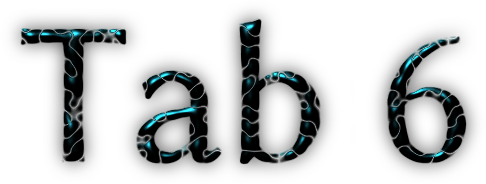search

Blue In Green
Miles Davis
Text File
"Blue in Green" (1959), by Miles Davis
Chord-melody for guitar
Tab and chords
Recordings:
Miles Davis - "Kind of Blue"
Bill Evans - "Portrait in Jazz"
--12----------8----6----5------3--------------10--|
--15----15----6---------5------3--------6------8--|
--14----------6---------5------4--------8------8--|
--------------5---------0------3--------8------8--|
--13----------0----------------4---------------8--|
---0------------------------------------8---------|
BbM7b5 A7#5#9 Dm9 Db7b9b5 Cm11 F13
----------------------5--6----8----5-----(0)------|
--5----------5--6--8----------6-----------8-------|
--7----7--6-------------------6----------10----10-|
--7---------------------------5----------10-------|
------------------------------0-------------------|
--6--------------------------------------10-------|
BbM7b5 A7#5#9 Dm11
-------8---------7----5--------13-----------------|
-------8----9----5-------------10----14-----------|
-------7---------5-------------10-----------------|
-----------------5--------0----10-----------------|
-------7---------0--------------------------------|
--0-----------------------------------------------|
E7#9#5 Am9 Dm7
repeat from the beginning once or twice, at this
point, and then move down to the final tab-block
to end
--12--------8----6-----5--|
--15----15--6----------5--|
--14--------6----------4--|
------------5----------3--|
--13--------0-------------|
---0----------------------|
BbM7b5 A7#5#9 Dm6+9
end.
When playing the song, if possible I subsitute an
open string for a fretted note, because it sounds
better, in my opinion.
For instance, on that A7#5#9 you see up above, the
note on the fifth string could be fretted. If it
were, the number would be a "5", for the 5th fret
(as opposed to 0, signifying an open string).
But for reference purposes, below I've notated the
chords with all their notes fretted. This way, the
diagrams below are movable shapes that can be
played based on any note.
Bottom line corresponds to bass string. Numbers on
frets correspond to finger. X means don't play
that string. Number under first diagramed fret
indicates the fret number on the guitar.
Here are the chords used in the song. When you fret
them, the melody note is accessible.
----1--|-------|-------|-------|
-------|-------|-------|----4--|
-------|-------|----3--|-------|
X-------|-------|-------|-------|
-------|----2--|-------|-------|
X-------|-------|-------|-------|
12
BbM7b5 (B-flat, major 7, flat 5)
For "Blue and Green", I include the open bass E
string in the strum, since it's the flatted 5th
of the chord, and making it the lowest note
makes it all sound spookier ^____^
-------|----3--|-------|----4--|
-------|----3--|-------|-------|
-------|----3--|-------|-------|
----2--|-------|-------|-------|
X-------|-------|-------|-------|
----1--|-------|-------|-------|
5
A7#5#9 (A 7, sharp 5, sharp 9)
For "Blue and Green", I play the open 5th
string instead of fretting the 6th string at
the 5th fret. Your decision. But the shape
above is useful rooted on any note.
-------|-------|----3--|
-------|-------|----3--|
-------|-------|----3--|
----1--|-------|-------|
-------|-------|----2--|
X-------|-------|-------|
3
Dm9 (D minor 9)
Same story for this one: the chord notated
above isn't fretted the same way in the tab.
Play it any way you want, as long as the chord
sounds right and the melody note is accessible
somewhere in the shape. When I look at it, I
realize that I'm leaving out the minor 3rd
when I play it as the tab indicates. Hmm.
-----1-|-------|
-----1-|-------|
-----1-|----3--|
-----1-|-------|
-----1-|----2--|
X-------|-------|
3
Db7b9b5 (D-flat 7, flat 9, flat 5)
X-------|-------|-------|
----1--|-------|-------|
-------|-------|----4--|
-------|-------|----3--|
X-------|-------|-------|
-------|-------|----2--|
6
Cm11 (C minor 11)
----1--|-------|----3--|
----1--|-------|-------|
----1--|-------|-------|
----1--|-------|-------|
----1--|-------|-------|
X-------|-------|-------|
8
F13 (F 13)
![chord popup]()

